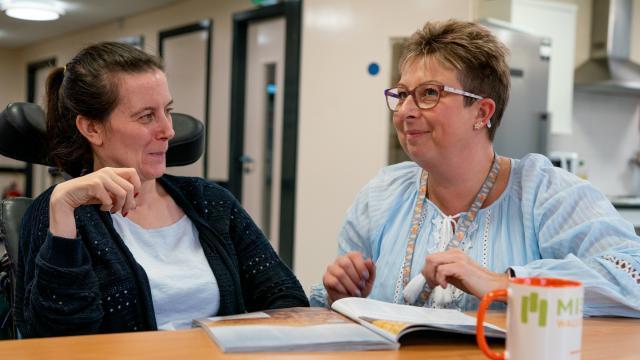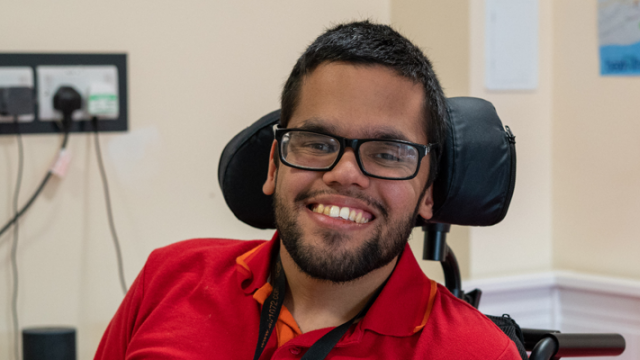Ready, Willing and Able – the story so far
In 2018, SeeAbility decided it was time to put to right a problem that shouldn’t exist in the 21st century – the disability employment gap.
To do this, the charity’s own supported employment programme, Ready, Willing and Able was created. In the years since, it’s developed into an effective supported employment programme that is working every day to ensure that everyone with a disability can choose to have a meaningful and long-lasting career.
Just like our participants, we too are on a journey and there’s still plenty of work to do. Here’s where we came from and what we’ve achieved so far:
1799 – The founding principles
At the turn of the 19th century, the founders of modern day SeeAbility established their first school in Southwark, London. The purpose of this school was to teach people with sight loss a useful trade, such as basket weaving, spinning and match making, supporting them to be more independent.
Early 2018 – The idea is born
In early 2018, with studies showing that only 6% of people with a disability were in work, the charity decided there was more that could be done to support disabled people into work. Revisiting our founding principles, work began to develop a programme that would build the skills of people with learning disabilities and autism, alongside supporting them to find jobs.
Summer 2018 – First person supported
With the new programme evolving, the charity supported its first person, Grace, to find an employment opportunity with the Bank of England. This work placement showed the importance of employment to people with disabilities, like Grace, and proved that as long as you are ready and willing to work, you are able to with the right support.
December 2018 – Funding secured
After months of planning and with a funding target in mind, the newly named Ready, Willing and Able supported employment programme was featured as part of the annual Big Give Christmas appeal. The aim was to raise enough money to fund a pilot of the project for a year, with the longer-term goal of launching an ongoing and permanent project.
2019 – Finding our way
The funding raised in Big Give appeal gave the project a kickstart and enabled us to start recruiting for experienced and enthusiastic people to be the heart and mind of the operation. However, the scale of the task ahead became apparent, and we realised that to achieve everything we wanted to, it was going to take a while longer. But that didn’t put us off.
March 2020 – New support
Working with the John Lewis Partnership’s Golden Jubilee Trust, we secured the support of a team of secondees who would use their knowledge to get the programme started.
May 2020 – A new leader
Ready, Willing and Able’s first Head of Supported Employment came on board and started to get the programme up and running, building on years of ideas and ambition.
October 2020 – Development gets underway
Delayed by the ongoing Coronavirus pandemic, the first secondees from the John Lewis Partnership arrived and quickly set about collaborating with colleagues to build a wealth of resources that could be used to create new connections with businesses and employers.
January 2021 – The coaches arrive
The programme’s first two supported employment coaches Rhian and Rasha joined the team. They used their skills to find the programme’s first participants and began to guide them on their journey to employment.
April 2021 – Soft launch
The Ready, Willing and Able brand was launched and the programme was ready to work with participants, employers and businesses to start making change. It had been a long time coming.
July 2021 – First success story
After years of preparation and hard work, Ready, Willing and Able succeeded in supporting our first participant, Beatrix, to find employment. Beatrix joined the programme only a month before, having looked for work unsuccessfully for 7 years. She’s now succeeding in her job as a waitress in an award winning restaurant.
November 2021 – Awareness grows
Ready, Willing and Able features in the BBC’s Lifeline appeal, highlighting the role of supported employment programmes in closing the disability employment gap. The short video appeal generated lots of interest in the programme and gave us another boost.





